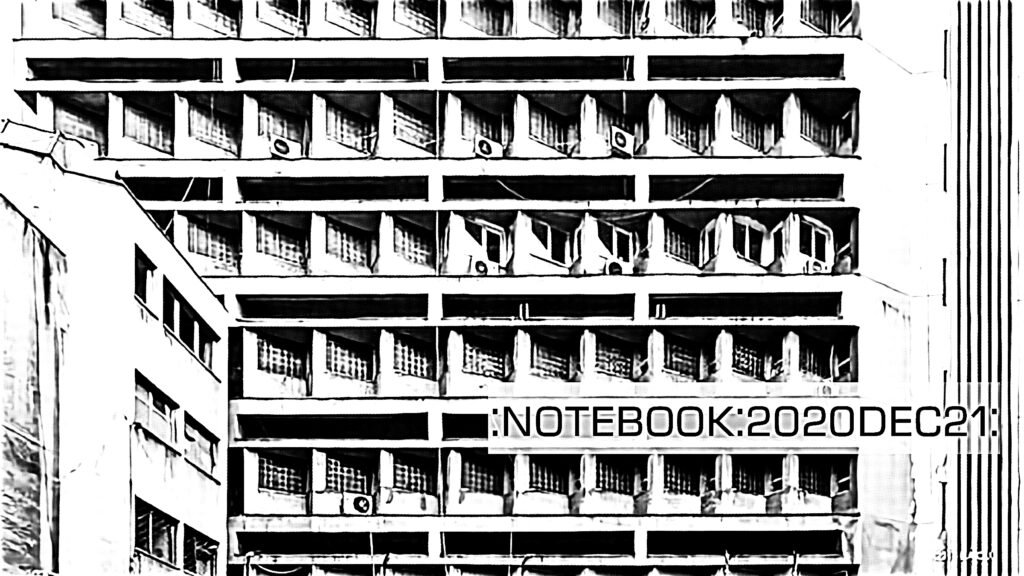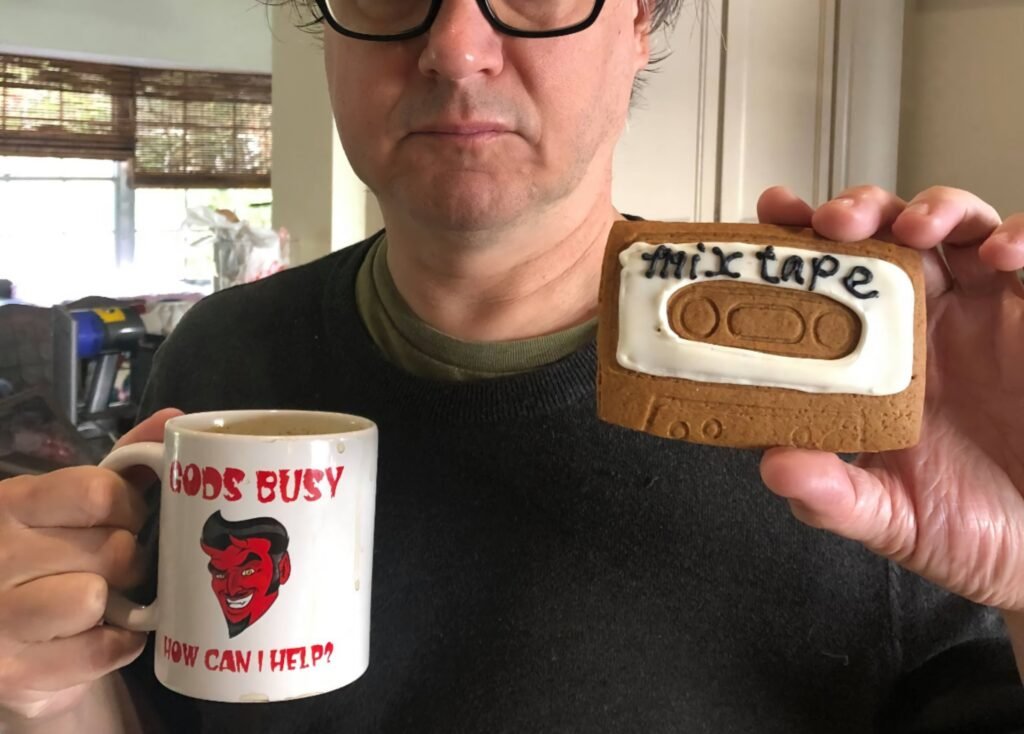In this fantastic 2-hour radio show, writer Jon Savage spotlights the influential music that “cut the knees off punk.” Meaning: the synthesizer and electronic music hybrids emerging in 1976, opening the door to the oncoming post-punk explosion. Listen.
Gingerbread Mixtape

ASCAP, BMI Partner To Launch SONGVIEW Comprehensive Song Database → If you’re a music publisher, perennially at the top of your Xmas list is a central database for looking up song rights information. In other words, a search engine that’s PRO agnostic: input a song and find out the writers, the publishers, and the shares no matter the rights owner. But BMI’s search only shows songs with BMI representation, ASCAP shows only ASCAP, and so on. So, until you strike gold, you’re going from PRO-to-PRO to find writer and publisher details on a song.
Here’s a start: today, BMI and ASCAP announced Songview, a search platform that shows results from both repertoires. It’s slicker than the companies’ previous search engines (it’s especially an upgrade for BMI) and seems to return more accurate results. This will make things easier, but I’d love SESAC and the others to come on board. And my face would assume a permanent joyful expression if one day Songview included details from international publishers and PROs. How cool would it be to look up a song and see if other publishers control it in different territories? Often it seems that half of a music licensee’s job is figuring out this complexity, investigating like a song-rights sleuth. Regardless, I’m encouraged by Songview. Fingers crossed that these are early days, and the participation of other PROs on the platform is on the horizon.
——————

Every holiday season, David and Jennifer send us (and other lucky friends) an assortment of hand-crafted gingerbread cookies. This year I got a mixtape. Goes great with coffee. (Be sure to check out David’s blog 1000 Cuts.)
——————
Holy Tongue – Holy Tongue → No one knows where dub goes. UK duo Holy Tongue are doing their damndest to track it down. Witness: Post-punk spliced with dub the way it was done, anachronistic but futuristic like if at the end of Primer the time machine room was revealed to be This Heat’s Cold Storage studio. Holy Tongue are Valentina Magaletti on drums and percussion and Al Wootton on guitars, synths, and the occasional siren. The performances are improvised, phase two of the magic apparently happening on the mixing desk where the Tubby/Sherwood spirit inspires all manner of echoing, hi-hat filtering, spring reverbing, and other ravishing embellishments. The result is as good and gritty as many early ‘80s On-U experiments. It’s refreshing in 2020 to hear something so raw yet technical, unsequenced but rhythmically tight. There’s no word whether Holy Tongue is a one-off or a continuing affair. I’m rooting for the latter (and live shows!). This tradition of exploratory studio hybrid-dub needs to live on and on and on, like a tape delay’s rising, infinite ghost tail.
Beyond Rip It Up: Towards A New Definition Of Post Punk
So why does post-punk work so well as a brand when its content remains amorphous? [Simon] Reynolds [author of Rip It Up And Start Again] himself defined it as “less a genre of music than a space of possibility”. Yet we can’t lose sight of the fact that the Latin qualifier means after, subsequent or later. Some limitation on duration is also necessary, though application can’t be merely calendar-defined. We have to respond to the term with some reference to musical discipline and its entanglement with punk itself. Is there a compelling argument for digesting the period 78-82 as a single musico-sociological unit? I know not of such a beast. Unless you deconstruct the repeated message broadcast from 1978 onwards that punk was ‘dead’ and that a new dawn was implicit from that point. But punk wasn’t dead. Some of its most critical interventions still lay ahead.
Punk begat vast dissonance and fragmentation. There are no means by which the wealth of music thus engendered in the period 78-84 (to use Reynolds’ own parameters) can be adequately unified. It was all too untidy (and thrilling, as Reynolds conveys well). On the basis of reactions here [at the Leeds ‘post-punk conference’], post-punk has become a little akin to the Human League’s ‘Black Hit Of Space‘, sucking everything into its orbit. Let’s look again at some of the musical subjects this conference tackled: Throbbing Gristle, Orange Juice, Hazel O’Connor, the Fleshtones, Frankie Goes to Hollywood, Mission of Burma. It would make for an interesting mix tape. But you can’t imagine too many fans of each artist ever gathering in the same room.
You probably already know how I feel about ‘post-punk.’ Those bands changed my teenage life a lot more than ‘punk’ did. As for a stylistic definition, you know it when you hear it (or even see it) … that’s pretty much the best we can do though Reynolds does make a valiant stab at it in his aforementioned book. The fact that, as a genre, it’s all over the place is part of the attraction. Those were messy times, and ‘post-punk’ was a correspondingly messy thing. Admittedly, I do try to imagine the excitement of recording music in those uncharted waters every time I flick on the studio gear in this present era.
Music Break: Post-Punk Synths
Wire up your nostalgia. Here’s an appealing hour-long playlist that, in the words of Little Records, “explores the role of synthesizers in early post-punk.” There are a few curve-balls thrown in amongst some obvious (but indispensable) choices, and it’s all quite fun to hear on this hazy Friday.
Optimo Music Clashes With Sony Over Post-Punk Compilation
Sony’s objection is to the compilation’s original title, Now That’s What I Call DIY! (Cult Classics From The Post-Punk Era 1978-82), which it says infringed its copyrighted Now That’s What I Call Music! series. Optimo Music head JD Twitch told RA: “I couldn’t reach an agreement with Sony to modify the existing sleeves that was either satisfactory to them or cost effective to me, so the original sleeves will be destroyed.” He says the process cost “several thousand pounds,” adding: “While the whole thing has been a nightmare and extremely annoying, really, the only person I am angry with is myself for not even considering it might be an issue.”
Oops. Regardless, the compilation looks very interesting. I’m stumped by most of the track list and that era’s loosely defined ‘post-punk’ is probably my favorite genre. I’m on board.